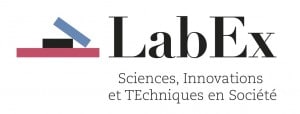@techreport{Loconto2021,
title = {Formal and informal European quality assurance initiatives offering a connection between local gastronomy and small-scale farmers},
author = {Allison Loconto and Francisco Garrido-Garza},
url = {https://www.cortext.net/wp-content/uploads/agrikulti_final-report_25-01-2021.pdf},
year = {2021},
date = {2021-01-25},
abstract = {Since the turn of the 21st century, short food supply chains (SFSC) (Renting et al., 2003; Marsden et al., 2000) and values-based food chains (Ostrom et al., 2017) have emerged across Europe as an increasingly popular means to create closer linkages between producers and consumers. While the European Union (EU) average for farms selling more than half of their production direction to consumers is near 15 %, this is distributed unevenly among member nations and is largely restricted to small farms (Augére-Granier, 2016). This report argues that direct sales had minor importance in Malta, Austria and Spain, where supermarkets dominate food retail with more than 90% market share. However, direct sales, traditional specialty shops and food markets are very important in other countries. Direct sales account for 25% in Greece, 21% in France, 19% in Slovakia and around 18% in Hungary, Romania and Estonia (Augére-Granier, 2016). In addition, a nationally representative survey in France found that 42% of consumers had purchased food through a SFSC during the month prior to the study (Loisel et al., 2016).
SFSCs are considered to be short based on criteria of social and geographic proximity.
Kneafsey et al. (2013) put forward the following definition – based on French ministerial and the European Commission (EC) definitions – in order to separate these initiatives from conventional food chains.
“The foods involved are identified by, and traceable to a farmer. The number of intermediaries between farmer and consumer should be ‘minimal’ or ideally nil.” (p. 42).
Recent consumer research demonstrates that trust-worthiness of food chain actors and the openness of food manufacturers are strongly related to consumer confidence in food (Macready et al., 2020). Thus, the assumption of SFSC promoters is that this greater transparency translates into greater consumer confidence in producers and as a result more social, equitable and fairer trading practices between producers and consumers.
Quality assurance and certification are the most common means used to communicate transparency and openness in both conventional and sustainable supply chains (UN environment, 2017). Prior research demonstrates that there are a variety of ways in which assurance and certification can be organized in order to credibly guarantee quality (Loconto, 2017a).
Within this context, the Hungarian Ministry of Agriculture has commissioned AGRI KULTI to develop an information and quality assurance system, that identifies management patterns across the connection of local production and gastronomy, both in Hungary and in the European Union (Food Track project). For this reason, a comprehensive and comparative data analysis is required. Thus, this study consisted of exploring and analysing initiatives, businesses or organizations in the EU that can be classified as SFSCs and that communicate their sustainability quality attributions (e.g., organic, local, healthy, agro-ecological, traditional, etc.) through a variety of forms of certification.},
keywords = {},
pubstate = {published},
tppubtype = {techreport}
}






